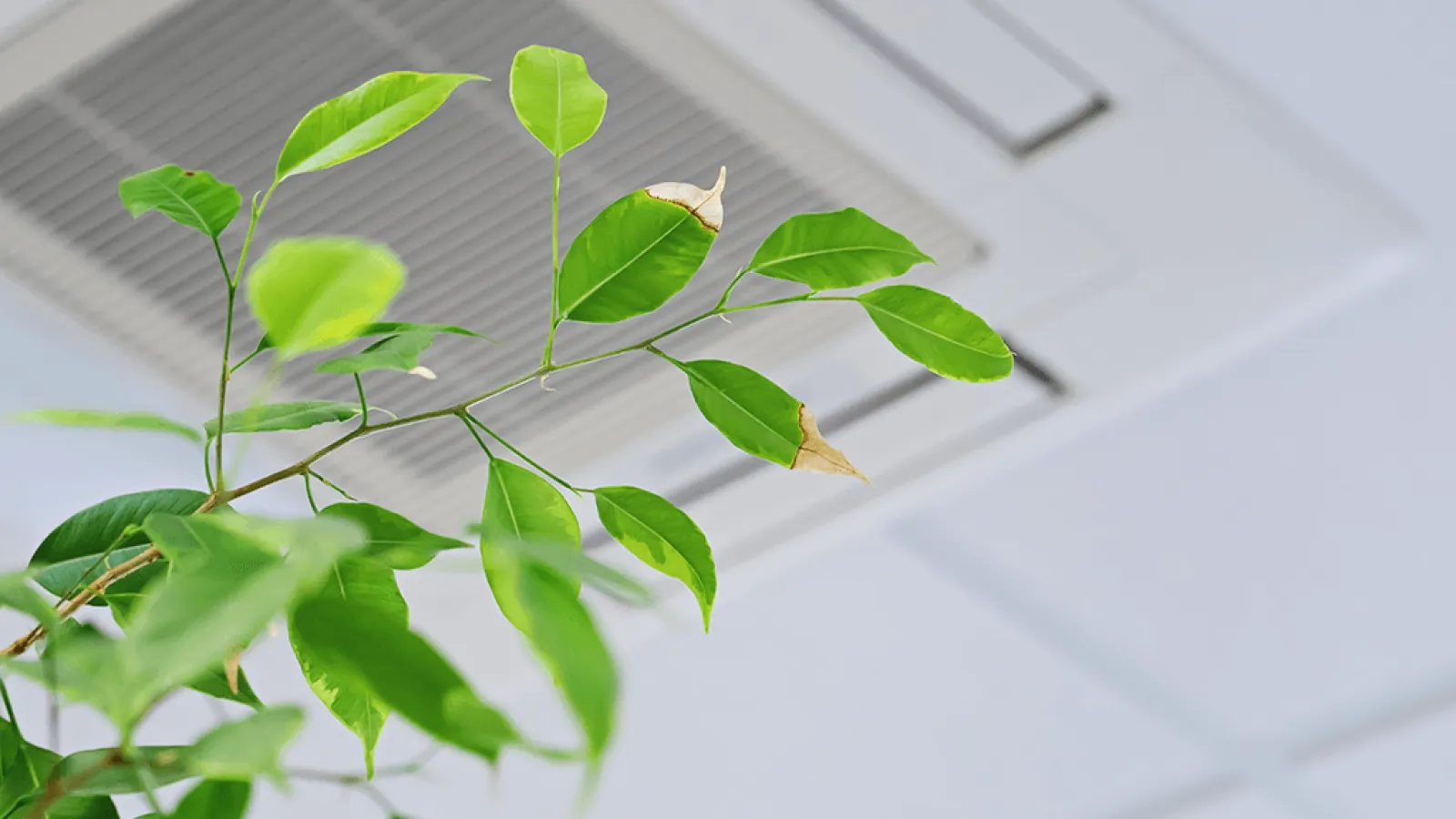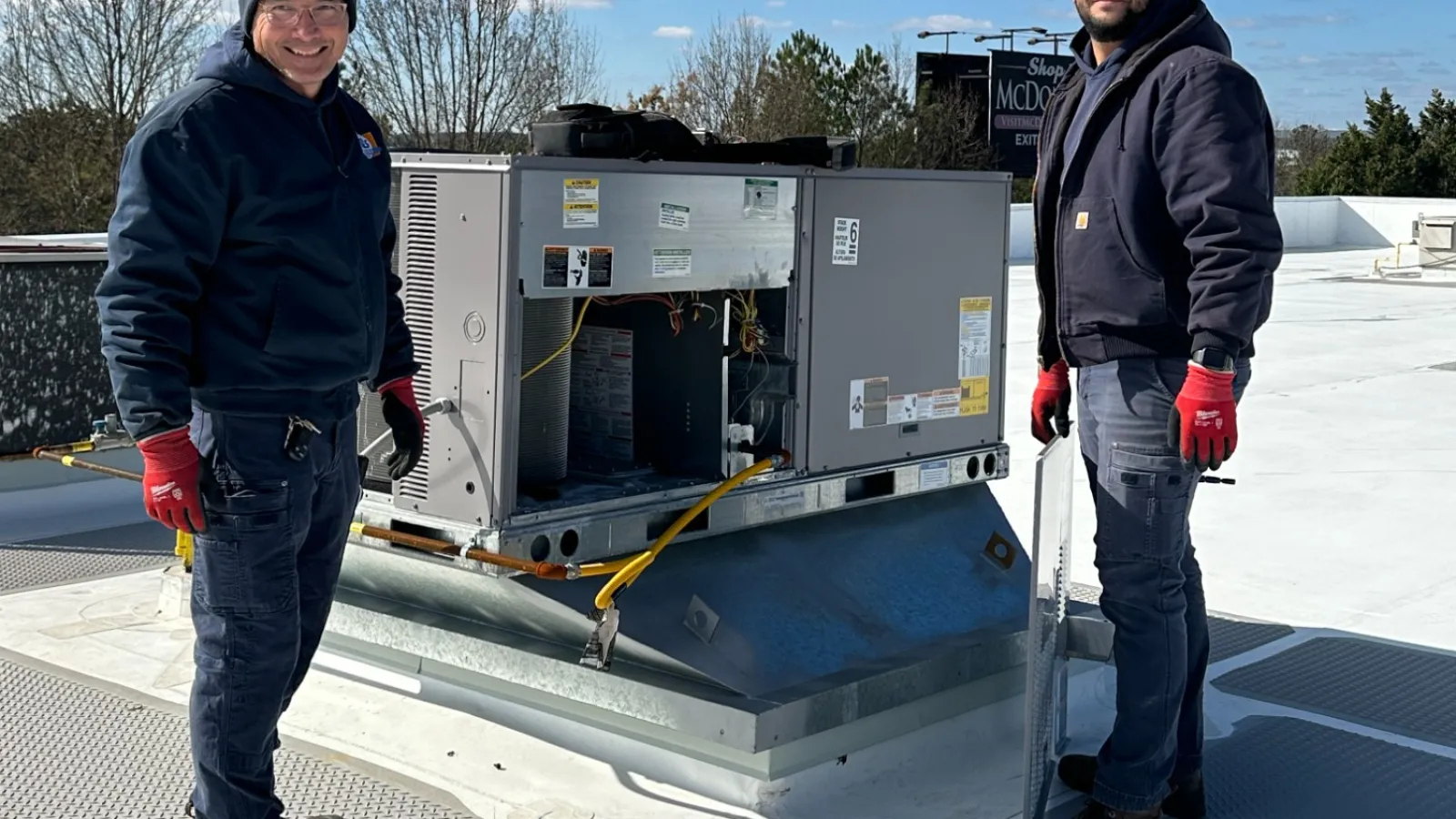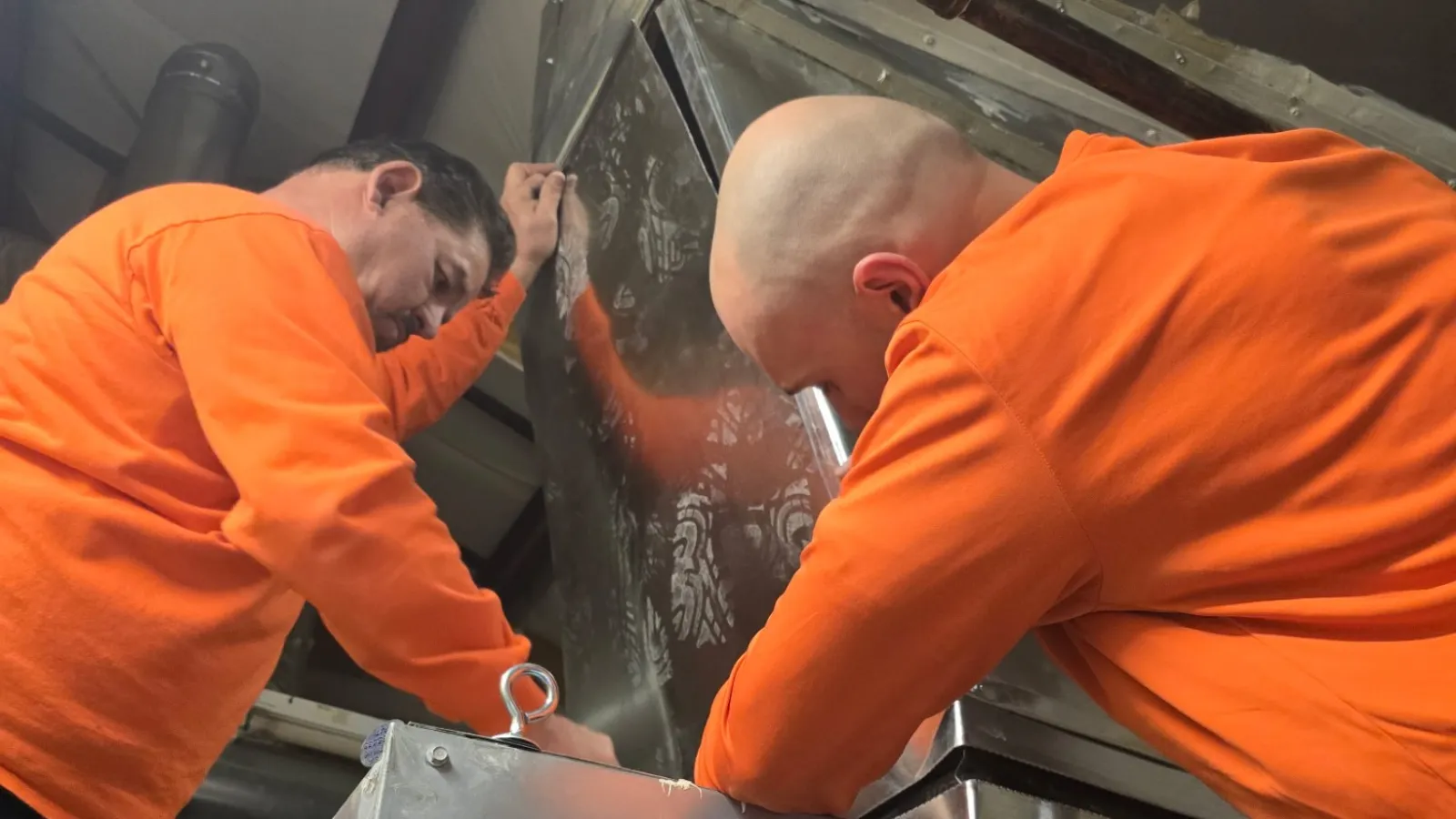Each year, the American Lung Association releases the “State of the Air” report, which grades the air quality of cities and states throughout the country. Atlanta area business owners need to be aware of these findings and their implications, as the quality of air outdoors affects HVAC air quality inside commercial buildings.
High air pollution poses several problems for your workforce and productivity. As a business owner or facility manager, HVAC air quality must be a high priority. Improvements in indoor air quality build a healthier workplace, helping you avoid productivity loss due to illness.
Estes Commercial provides HVAC air quality solutions to help business owners improve and manage HVAC air quality in commercial buildings and facilities. We share the findings of the 2019 State of the Air report and discuss the HVAC air quality threats local businesses face. Also, learn more about the leading solutions that help you enhance air quality inside your business facility.
2019 State of the Air Report
The 2019 State of the Air Report assesses U.S. air quality data from the 2018 calendar year. According to the latest report, Atlanta ranks as the 25th worst city for ozone pollution. Ozone is the primary ingredient that makes up smog, with exposure contributing to a number of negative respiratory health effects.
Fulton County ranks as the most ozone-polluted county throughout the Atlanta metro area, with several metro area counties receiving an F grade for ozone pollution, including:
- DeKalb
- Fulton
- Gwinnett
- Henry
- Rockdale
However, the Atlanta metro area experienced fewer days of bad ozone pollution in 2018 compared to 2017 data, with just:
- 25 orange alert days and 3 red alert days for Fulton County
- 12 orange alert days for DeKalb County
- 9 orange alert days and 1 red alert day for Gwinnett County
- 13 orange alert days and 1 red alert day for Henry County
- 13 orange alert days for Rockdale County
Though generally dropping, thanks in part to cleanup initiatives concerning coal-fired power plants and decommissioning of older diesel engines, the Atlanta area did see worse levels of year-round particle pollution in 2018 versus 2017. The area ranked 19th worst in this category. Particle pollution is made up of soot and other minor particles that are given off when wood burns, from diesel emissions, and through operation of coal-fired power plants.
Commercial Ventilation for HVAC Air Quality
Airborne impurities and condensation can build up inside a commercial building if ventilation is compromised. A commercial ventilation system brings in fresh, filtered air to expel polluted indoor air, improving HVAC air quality inside the facility and occupant health. Ventilation systems offer comfort benefits including more even temperatures.
Commercial Make-Up Air Units
Make-up air units bring in fresh air to offset exhausted air from your building, improving HVAC air quality and preventing negative pressure in a multi-level structure. These units prevent the spread of odors within a facility, protecting HVAC air quality throughout various workspaces.
Commercial Exhaust Fans
Commercial exhaust fans remove odors and airborne pollutants from your workspace. Work activities producing moisture, volatile organic compounds (VOCs), carbon dioxide, fumes and other contaminants build up in the building if not properly exhausted, posing potential dangers to your workforce while diminishing HVAC indoor air quality. Commercial exhaust fans pull these harmful contaminants from your indoor areas, exhausting them outdoors.
Moisture Control for HVAC Air Quality
The activities taking place within your building as part of operations and production can add moisture to the air indoors. Outside humidity levels also affect indoor relative humidity levels. When moisture levels are not kept within a safe range indoors, HVAC air quality suffers which can have harmful effects on your facility, its contents and its occupants.
Building dehumidification systems extract moisture from within your building, preventing condensation from forming on surfaces where it can damage expensive machinery and other assets. Excess humidity indoors also increases allergen concentration while aiding in the spread of viruses and germs, causing health effects to employees and customers – a dehumidifier to keep your facility’s relative humidity levels within an ideal range will keep your occupants feeling more comfortable and healthier.
Improve HVAC Air Quality with Estes Commercial
Just because the air quality in Atlanta has fallen doesn’t mean your business has to stand for poor indoor air quality. Estes Commercial offers reliable HVAC air quality solutions for commercial buildings. Contact us now to discover what HVAC air quality solutions fit your facility’s needs.



